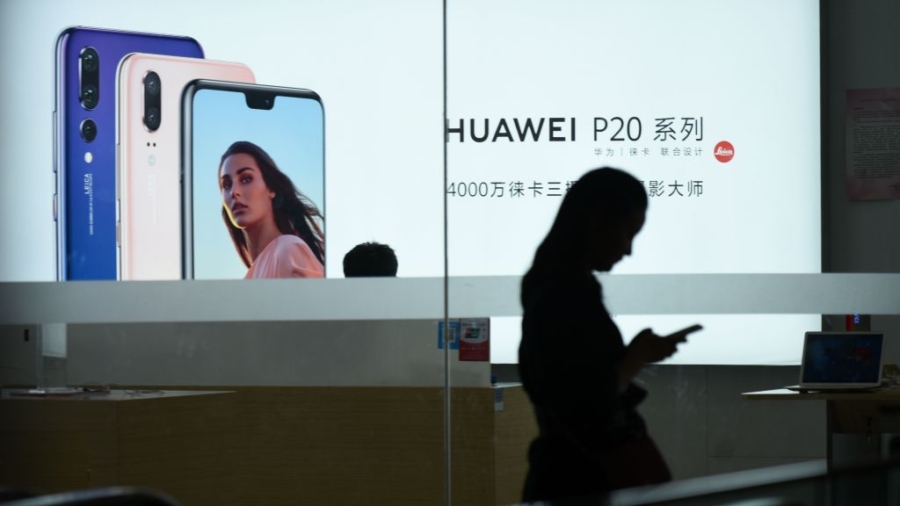Reports are emerging that Huawei sold telecommunication systems to the Taliban, a terrorist organization that embraced militant leader Osama bin Laden’s war against the United States.
Huawei’s support for the Taliban dates back to the year 2000 or even earlier. The Taliban helped bin Laden and his Al-Qaeda terrorist group attack the United States.
Reuters reported on January 8 that Huawei used two companies to do business with Iran and Syria to avoid sanction-related bans, namely Hong Kong based Skycom Tech Co Ltd and Mauritius-registered Canicula Holdings Ltd. Skycom Tech, the equipment vendor, under the umbrella of a shell corporation called Canicula Holdings.
Although Huawei has no relationship with these two companies on the surface, Reuters discovered clues the manager of Skycom’s Iran branch might be Shi Yaohong, which happens to be the name of a Huawei executive. Shi was appointed as Huawei’s president of the Middle East region back in June 2012.
In addition to this, most signatories of Skycom bank accounts in Iran are of Chinese ethnicity and, at least three of them, had signing rights for both Skycom and Huawei bank accounts.
Huawei not only did business with countries sanctioned by the United States but also sold telecommunications systems to the Taliban.
Chinese Regime Linked to Osama’s War on US
The Population Research Institute reported in September, 2001 the Chinese regime and suppliers played a key role in Osama bin Laden’s war on America.
Since the early 1990s the Taliban regime had enthusiastically aided and abetted Al-Qaeda against the United States, including the 1993 bombing of the World Trade Center, 1995 bombing in Saudi Arabia that killed five U.S. servicemen, 1998 U.S. embassy bombings in East Africa, and 2000 attack on the USS Cole off the coast of Yemen that killed 17 American servicemen.
The Taliban also maintained a close relationship with Beijing authorities throughout the past decades. In December 2000, the U.N. Security Council voted to place an embargo on arms sales to the Taliban, which forced the Taliban to close bin Laden’s terrorist training camps in Afghanistan. Beijing abstained from voting.
Months later, Huawei made a deal with the Taliban to build an extensive military communications system throughout Afghanistan.
The Chinese regime supported the Taliban both in arms and techniques, the report said. Huawei made a major contribution to building the telecommunication system for the Taliban.
Intelligence Agencies Scrutinize Huawei Deals
India’s intelligence agencies had placed Huawei on a watch list for alleged business dealings with the Taliban according to Indian media in December, 2001. Before the September 11 terror attacks, Huawei India was suspected of supporting terrorism the reports said. The India Software Technology Parks of India had also investigated Huawei India’s activities, and questioned Jack Lu, then Huawei India chief operating officer.
In addition to this, India’s Cabinet Committee on Security (CCS) had planned to deport 178 Chinese engineers working for the Huawei India research and development center in Bangalore, because CCS had discovered Huawei India was allegedly supplying communication surveillance equipment to the Taliban in Afghanistan, Pakistan, and Iraq.
The Chinese regime refuses the allegation and said the report is misleading, while the Indian government did not comment.
Taliban Linked to Afghan Cellular Curfew
The Taliban is also believed to be controlling Afghanistan’s mobile communication system according to The New York Times reported in October 2011.
The connection between the local region and rest of the world relies on cell phones because there is no other communication system available, the NY Times reported.
Since the Taliban had set up the mobile communication system, exercised its authority by turning off the system at 8 p.m. every evening and turning it back on each morning. This cellular curfew occurs in more than half the provinces across Afghanistan.

Supply Transactions Proceed Despite Sanction
It is widely known the Taliban has been on the United Nations (U.N.) sanction list since 1999. No communication company has since been allowed to sell communication systems to them.
Huawei reportedly supplied the telecommunication system for the past decades.
The China state-run media, Guancha, reported on October 26, 2014 a customer threatened to burn the base station if Huawei could not repair the internet connection within one week.
The customer was from the Taliban and code of the base station was “LGR004,” the report said. The terrorist complained because the “internet is very slow or not working at all.”
The Taliban is infamous for its terrorist activities across the world and supported by other terrorist organizations.
From The Epoch Times.


